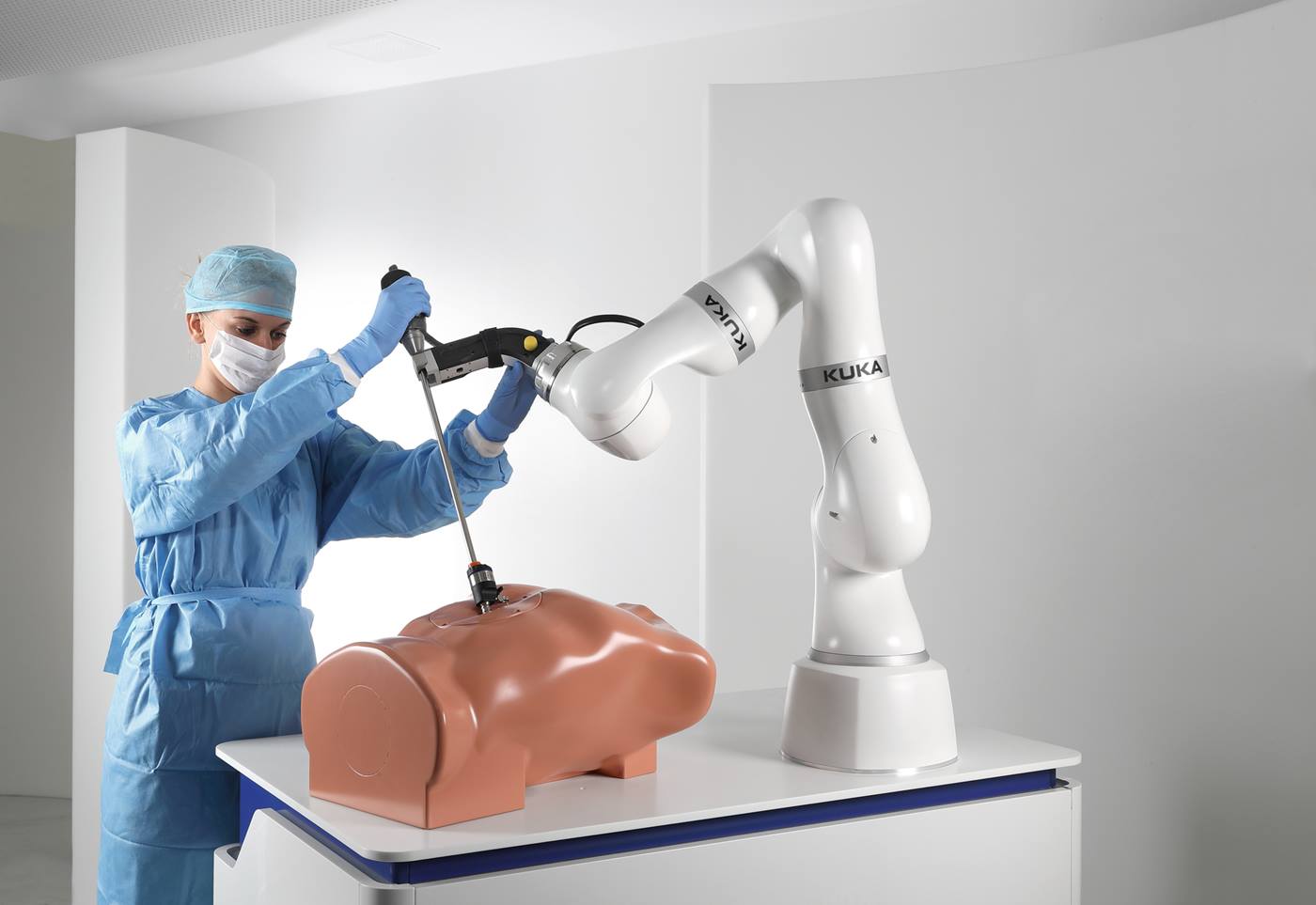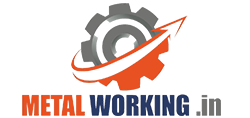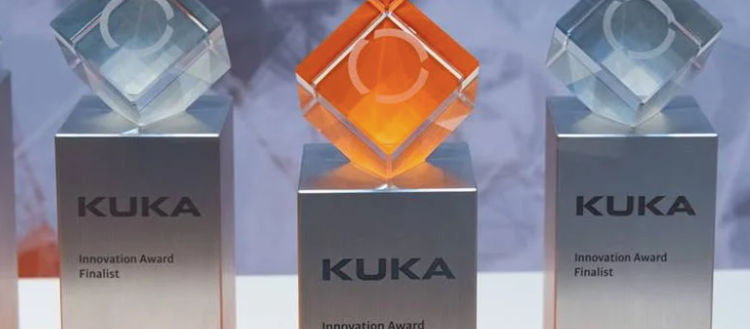KUKA Innovation Award 2022: These are the finalists of the “Robotics in Healthcare Challenge”
Promotion of maternal health, healing of severe skin injuries or support with arthritis examinations, brain surgery or rehabilitation measures: five teams made it to the final of the KUKA Innovation Awards with their innovative robotics ideas.
This year, the KUKA Innovation Award, endowed with 20,000 euros, is all about medicine and health. Because new technologies are playing an increasingly important role in healthcare and will be almost indispensable in the future.
Researchers, developers and young entrepreneurs submitted their concepts for the “Robotics in Healthcare Challenge”. An international jury of experts evaluated the concepts and selected five finalists. In addition to KUKA experts, the jury members include renowned professors and specialists in the field of robotics as well as experts from the med-tech sector.

Intelligent robotics offers great opportunities, especially in healthcare, with new concepts and efficient and high-quality treatment options – for the benefit of patients. We received innovative concepts from all over the world, from which we selected the five most promising. We look forward to supporting the final teams as they develop their ideas further over the coming months.
These are the finalists of the KUKA Innovation Award 2022
Team Ligo
The Ligō device is a novel 3D bioprinting platform that supports functional healing of skin tissues after acute skin injuries such as extensive burns. It is being made in Australia by Sydney-based start-up Inventia Life Sciencedeveloped together with the renowned skin surgeon Prof. Fiona Wood and the bioprinting research group of Prof. Gordon Wallace. The Ligō robot, whose code name comes from Latin and means “to bind”, prints tiny droplets containing the patient’s skin cells and optimized biomaterials directly into the wound in the operating room using the KUKA LBR Med and patented 3D bioprinting technology from Inventory uses. In this way, tissue-directed regeneration is stimulated, allowing the body to heal itself and restore healthy skin, improving the quality of life for skin injury survivors.
Team AROKI
Maternal health remains a major challenge, particularly in developing countries. Many health centers in developing countries lack basic facilities for antenatal ultrasound scans and qualified professionals to perform the scans. The AROKI team at IIT Madras in India wants to significantly improve the quality of maternal and pregnancy care through the use of robotic solutions. The platform integrates the KUKA LBR Med to enable autonomous scanning, 3D ultrasound reconstruction and telesurgery with immersive virtual reality for visualization, monitoring and diagnostics.
Team Brubotics
Robots will play an increasingly important role in rehabilitation in the future as rehabilitation robots can provide frequent and repetitive training as well as ergonomic working conditions for the therapist. However, new rehabilitation strategies are also needed to improve the functional outcomes of robotic therapy. The team from Vrije Universiteit Brussel and imec addresses these challenges by using the KUKA LBR Med in combination with a soft-sensory physical interface. By using integrated multi-modal sensors, the team can add additional layers of safety and comfort, and capture user desire to design more flexible rehabilitation robots.
Team ROPCA
ROPCA ‘s vision is to develop a variety of robot application platforms that help clinics increase the productivity and quality of their daily work. The first product is ARTHUR – an ARTHritis ultrasound robot. The application consists of an automated ultrasound platform for the examination of patients with rheumatoid arthritis. The patient can interact directly with the platform and the doctor saves time when consulting the patient because the ultrasound images for diagnosis are already there.
Team cortEXplore
cortEXplore develops neuronavigation technologies for planning, simulating and performing brain operations. In this project, the team plans to implant neural interfaces with robotic support. In detail, the robot should orientate itself on the operation plan and implant microelectrodes in the brain. Such operations can be used to realize brain-computer interfaces or to study neural mechanisms in the brain.
KUKA Innovation Award 2022: And so it goes on
 In the next step, the finalists implement their ideas with a KUKA LBR Med – the first collaborative robot that is specifically certified for integration into a medical product . For this purpose, the teams are provided with the KUKA robot and a vision system from the Munich company Roboception for at least six months free of charge, consisting of a rc_visard 3D stereo sensor and associated rc_reason software modules. This enables robots to see and understand and they can be used flexibly in a wide variety of application areas.
In the next step, the finalists implement their ideas with a KUKA LBR Med – the first collaborative robot that is specifically certified for integration into a medical product . For this purpose, the teams are provided with the KUKA robot and a vision system from the Munich company Roboception for at least six months free of charge, consisting of a rc_visard 3D stereo sensor and associated rc_reason software modules. This enables robots to see and understand and they can be used flexibly in a wide variety of application areas.
In addition, the finalists receive training for the hardware and software as well as coaching from KUKA experts throughout the competition. The finale of the Innovation Awards will take place at the MEDICA medical trade fair in November 2022 . There, the final teams will present their applications to a large specialist audience from industry and research as well as media representatives and investors. The winning team can look forward to prize money of €20,000.
This content was first published on the Kuka website.

